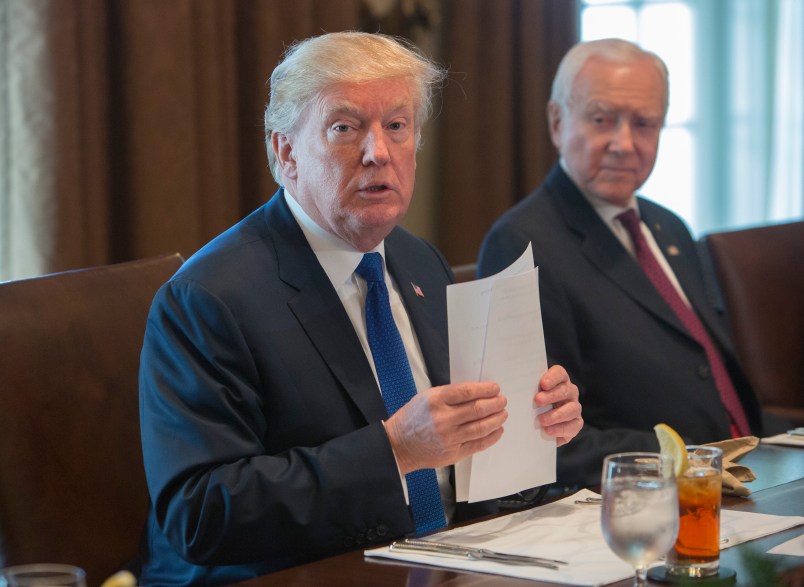The morning after Christmas, President Donald Trump resumed his victory lap on the GOP tax plan, boasting correctly that he had repealed “the very unfair and unpopular individual mandate,” but incorrectly adding that doing so “essentially repeals (over time) ObamaCare.”
Based on the fact that the very unfair and unpopular Individual Mandate has been terminated as part of our Tax Cut Bill, which essentially Repeals (over time) ObamaCare, the Democrats & Republicans will eventually come together and develop a great new HealthCare plan!
— Donald J. Trump (@realDonaldTrump) December 26, 2017
Health care experts and stakeholders agree the repealing the mandate that most Americans buy health insurance or pay a penalty will strike a blow to Obamacare’s individual market, raising insurance premiums at least 10 percent and making 13 million more people uninsured over 10 years.
But the rest of the Affordable Care Act—including generous subsidies for low-income families and laws banning discrimination based on gender and health status—remains firmly in place, and those carrots may be enough to draw millions of people into signing up for insurance even without the stick of the mandate.
In fact, just last week, with the status of the mandate up in the air, the first Obamacare open enrollment period under the Trump administration saw a surprisingly robust surge in signups. Nearly 9 million people enrolled in the federal health care marketplace, almost meeting last year’s total, and several state-run marketplaces are seeing record enrollment.
Still, it is unknown whether enough people in future years will log on to check out their options and discover they qualify for subsidies or Medicaid without the nudge of the mandate. The Congressional Budget Office predicts a large drop-off—calculating that the government will save hundreds of billions of dollars because millions fewer people will enroll in those heavily subsidized or free plans.







“…Democrats & Republicans will eventually come together and develop a great new HealthCare plan!”
For crying out loud, can someone give him the correct talking point?
“It will raise premiums for all, Bigly”
If it was up to Trump the new infrastructure bill would see the construction of regional Soylent Green factories.
“…Democrats & Republicans will eventually come together and develop a great new HealthCare plan!”
When one side believes the federal government has no business caring about health care and the other does, it’s hard to see how this would happen.
Can someone on the Oval Trailer staff please start “super-sizing” Donnie’s 12 daily Diet Cokes?
For the sake of the country?